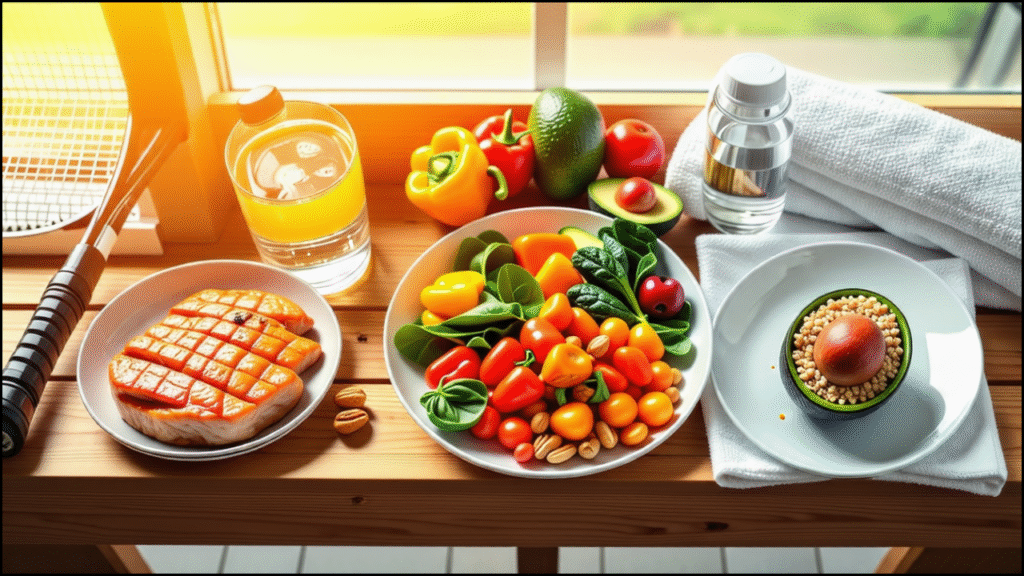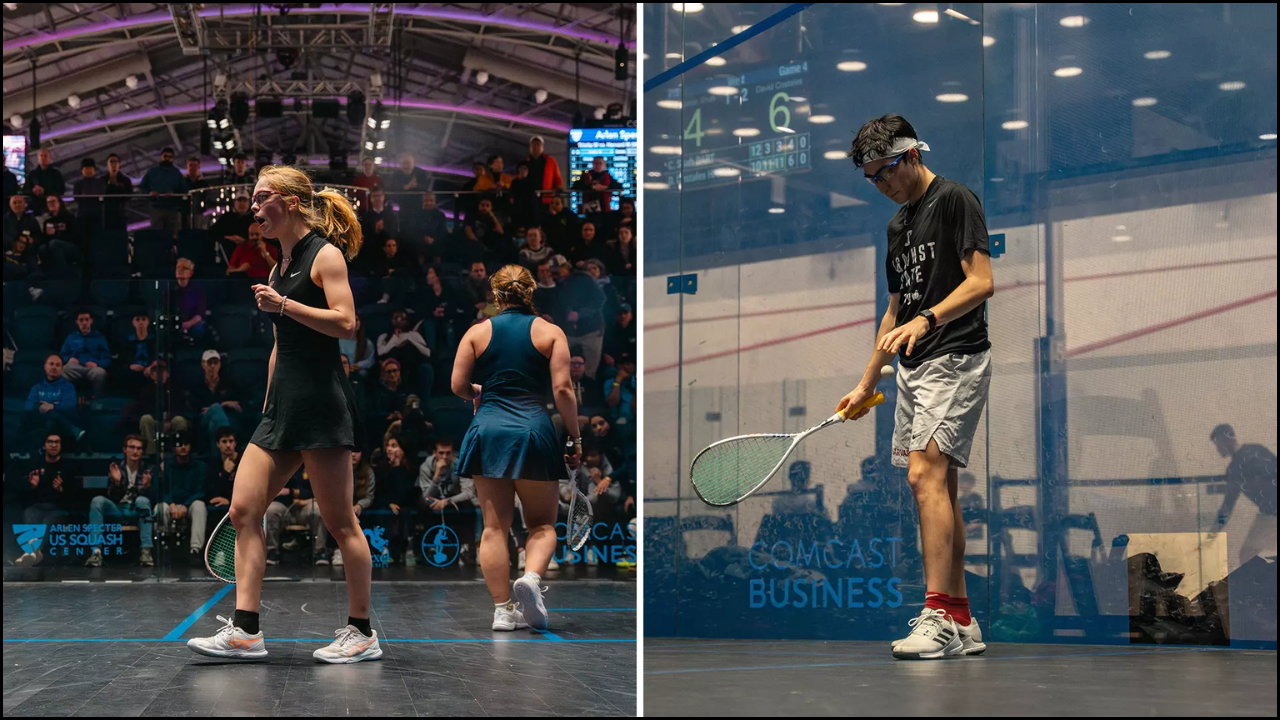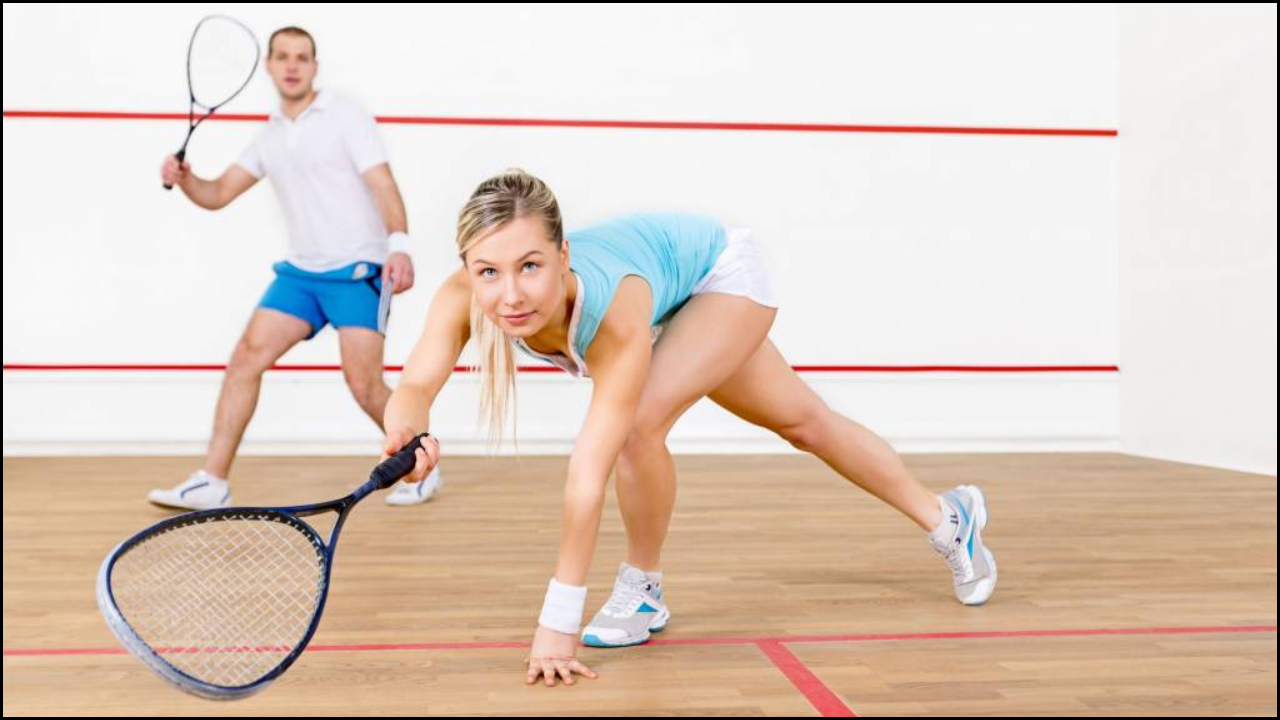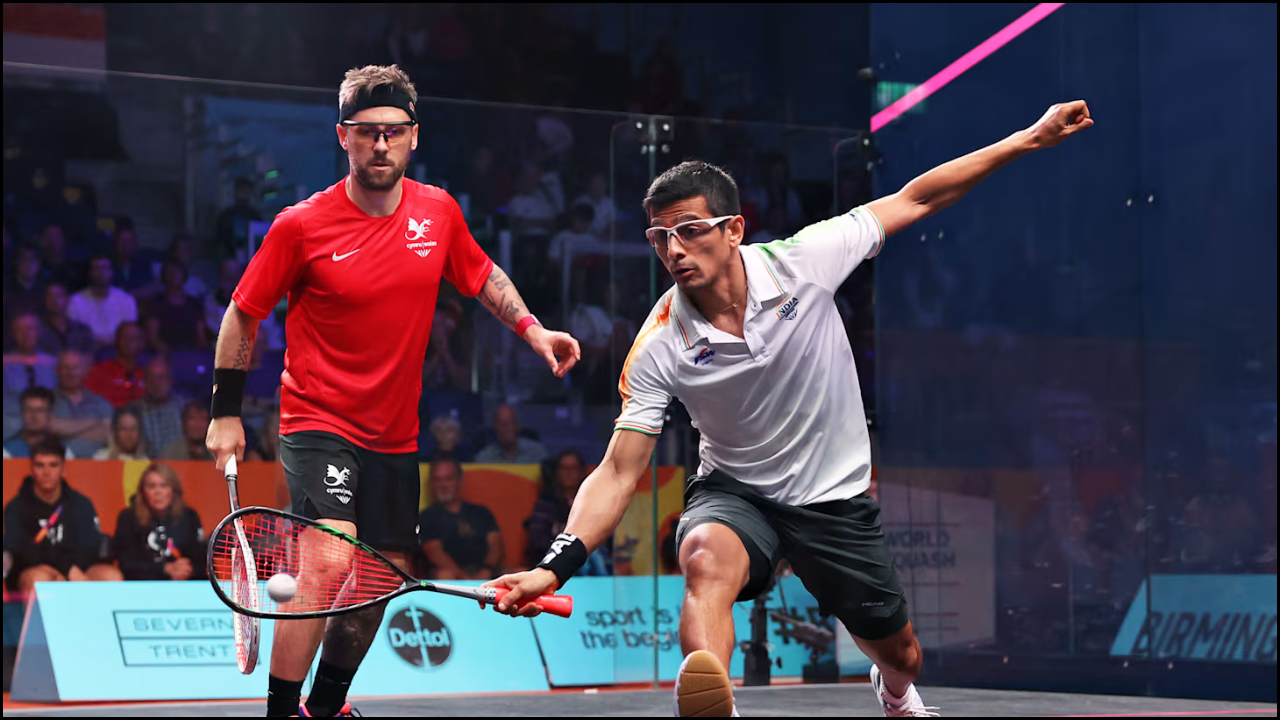
Nutrition plays a critical role in optimizing performance for squash players. The fast-paced nature of squash demands both endurance and explosive power, making a well-planned diet essential for stamina, recovery, and overall health. Proper nutrition can enhance reaction time, prevent fatigue, and reduce the risk of injury. This guide provides comprehensive advice on fueling the body to perform at its peak, tailored specifically for squash athletes.
Table of Contents
Hydration Strategies
Hydration is fundamental for squash players due to the high-intensity, indoor nature of the sport, which can lead to rapid fluid loss through sweat.
- Water consumption should be frequent, especially during training sessions lasting over 60 minutes.
- Electrolyte-rich beverages can prevent muscle cramps during long or intense matches.
- Pre-match hydration is critical, with players encouraged to drink 400–600 ml of water about 2 hours before play.
- Monitoring urine color can be an effective way to assess hydration status.
Pre-Match Nutrition
Pre-match meals should focus on providing sustained energy without causing digestive discomfort.
- Carbohydrate-rich foods fuel muscles and maintain blood glucose levels.
- Lean proteins support muscle function and recovery.
- Meals should be consumed 2–3 hours before the match.
- Avoid high-fat and high-fiber foods immediately before play as they can slow digestion.
Pre-Match Food Options
| Food Category | Examples | Benefits |
|---|---|---|
| Carbohydrates | Oatmeal, whole-grain bread, rice | Sustained energy release |
| Proteins | Chicken breast, Greek yogurt, eggs | Supports muscle function |
| Fruits | Bananas, berries, apples | Provides vitamins and quick energy |
| Beverages | Water, electrolyte drinks | Maintains hydration |
During Match Nutrition
Matches can last anywhere from 20 minutes to over an hour, requiring energy maintenance to prevent fatigue.
- Quick-digesting carbohydrates, such as fruit or energy gels, help maintain blood sugar levels.
- Water should be consumed at regular intervals to offset sweat loss.
- Electrolyte tablets may be beneficial in prolonged matches or tournaments.
Post-Match Recovery
Recovery nutrition is crucial for muscle repair, glycogen replenishment, and reducing fatigue.
- A combination of carbohydrates and proteins within 30–60 minutes post-match optimizes recovery.
- Anti-inflammatory foods, such as fatty fish, nuts, and berries, can aid in reducing muscle soreness.
- Adequate fluids are necessary to restore hydration levels.
Post-Match Recovery Foods
| Food Category | Examples | Benefits |
|---|---|---|
| Carbohydrates | Sweet potatoes, quinoa, pasta | Glycogen restoration |
| Proteins | Whey protein shake, lean meats | Muscle repair |
| Healthy Fats | Almonds, avocado, olive oil | Reduces inflammation |
| Fruits & Veggies | Spinach, blueberries, oranges | Antioxidants and vitamins |
| Beverages | Water, chocolate milk | Hydration and electrolytes |
Macronutrient Requirements
Squash players require a balanced intake of carbohydrates, proteins, and fats for optimal performance.
- Carbohydrates: Should constitute 50–60% of daily caloric intake to provide energy for explosive movements.
- Proteins: Should make up 15–20% of intake, supporting muscle repair and growth.
- Fats: Should comprise 20–30% of intake, emphasizing healthy fats for energy and inflammation control.
Daily Macronutrient Recommendations for Squash Players
| Macronutrient | Recommended Intake | Primary Sources |
|---|---|---|
| Carbohydrates | 5–7 g per kg body weight | Rice, pasta, whole grains, fruits |
| Proteins | 1.2–1.7 g per kg body weight | Chicken, fish, eggs, legumes |
| Fats | 0.8–1 g per kg body weight | Nuts, olive oil, fatty fish |
Micronutrient Focus
Essential vitamins and minerals play a significant role in performance and recovery.
- Iron: Supports oxygen transport in blood; sources include red meat, spinach, and lentils.
- Calcium: Essential for bone strength; found in dairy products, almonds, and leafy greens.
- Magnesium: Helps with muscle relaxation and energy production; found in nuts, seeds, and whole grains.
- Vitamin C: Supports immune function and collagen synthesis; found in citrus fruits and peppers.
Snacking Strategies
Effective snacks between training sessions or matches can prevent energy dips.
- Quick snacks should combine carbohydrates and proteins.
- Examples include a banana with peanut butter, yogurt with granola, or a protein smoothie.
- Avoid excessive sugar or highly processed foods, which can cause energy crashes.
Ideal Snacks for Squash Players
| Snack Type | Examples | Timing |
|---|---|---|
| Fruit + Protein | Apple with peanut butter, banana with Greek yogurt | Pre or post-training |
| Whole-Grain Snacks | Oat bars, whole-grain crackers with hummus | Between sessions |
| Liquid Nutrition | Protein shakes, smoothies | Post-training recovery |
Supplementation Considerations
While whole foods are preferable, supplements can fill gaps in nutrition when needed.
- Whey protein can support daily protein requirements.
- Creatine may enhance short bursts of energy, beneficial for squash.
- Multivitamins can ensure adequate intake of essential vitamins and minerals, especially during intense training periods.
- Consultation with a sports nutritionist is recommended before starting supplementation.
Special Considerations for Tournaments
Tournament settings require careful planning to maintain energy across multiple matches in a day.
- Consistent hydration throughout the day prevents performance dips.
- Meal timing should be adjusted based on match schedules.
- Portable, easy-to-digest snacks are ideal for between matches.
- Avoid trying new foods during competition to prevent gastrointestinal issues.
Tournament Nutrition Strategy
| Time | Nutrition Focus | Examples |
|---|---|---|
| Morning | Pre-match breakfast | Oatmeal with fruits, water, or tea |
| During Matches | Quick energy | Bananas, energy gels, electrolyte drinks |
| Between Matches | Recovery & energy | Protein shake, sandwiches, water |
| Evening | Post-tournament meal | Lean protein, whole grains, and vegetables |
Common Nutrition Mistakes
Awareness of common errors can prevent performance decline.
- Skipping meals or under-eating reduces energy and endurance.
- Excessive reliance on sugary foods can cause energy crashes.
- Dehydration, even mild, significantly impairs reaction time and agility.
- Ignoring post-match recovery nutrition delays muscle repair and glycogen replenishment.
Mental Performance and Nutrition
Nutrition also influences cognitive function, which is crucial for squash strategy and decision-making.
- Omega-3 fatty acids support brain function and focus.
- B vitamins help reduce fatigue and support nervous system function.
- Antioxidant-rich foods combat oxidative stress from intense training.
Hydration and Electrolyte Balance
Electrolytes such as sodium, potassium, and magnesium are vital for muscle contraction and preventing cramps.
- Sports drinks can replace electrolytes lost during intense matches.
- Coconut water is a natural alternative to commercial drinks.
- Daily intake of electrolyte-rich foods, like bananas, spinach, and nuts, supports overall balance.
Electrolyte Sources for Squash Players
| Electrolyte | Food Sources | Role in Performance |
|---|---|---|
| Sodium | Salted nuts, pretzels | Maintains fluid balance |
| Potassium | Bananas, sweet potatoes | Prevents muscle cramps |
| Magnesium | Spinach, almonds | Supports energy production |
| Calcium | Milk, yogurt | Muscle contraction & bone strength |
Final Analysis
Nutrition forms the backbone of a squash player’s performance. A well-balanced diet, combined with strategic hydration and proper timing of meals, supports endurance, speed, and recovery. Incorporating diverse foods, monitoring macronutrient and micronutrient intake, and using smart snacking strategies ensures that players maintain high energy levels during training and competition. Attention to nutrition is not only essential for physical performance but also for mental sharpness, injury prevention, and long-term health, making it a critical aspect of every squash athlete’s routine.





